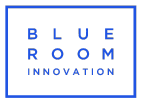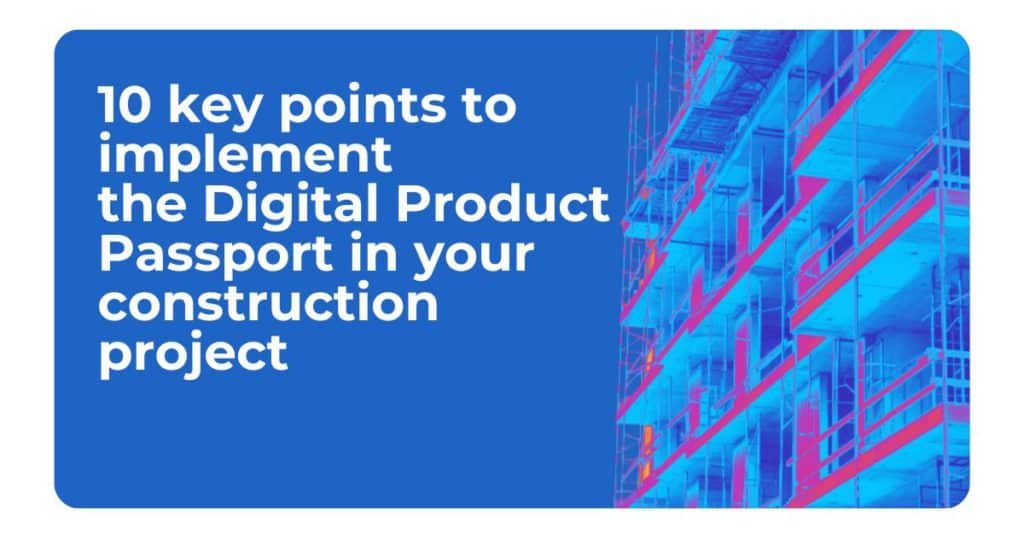

10 key points to start implementing the Digital Product Passport in your construction project
If you are part of the construction industry, you probably face the challenge of improving the transparency and traceability of the materials and products you use in each project. This is where the Digital Passport of Construction Materialstogether with the technology blockchaincan make all the difference. This combination will allow you to collect and share detailed information on each material, ensuring that the data is reliable, immutable and traceable throughout its life cycle.
In addition to helping you comply with regulations (ESPR and future CPR among others) and promote sustainability, this solution will facilitate collaboration between manufacturers, suppliers and builders, optimizing your processes and increasing efficiency. If you are considering implementing DPP in your projects, here are some keys to take the first step successfully:
Key points to start implementing the digital product passport with blockchain technology in construction projects:
1. Identifies objectives and scope
- Define the purpose of the DPP: Will you use it for traceability, sustainability, compliance or lifecycle management? Or perhaps a combination of these.
- Select key materials: Prioritize those that provide the most value, such as steel, concrete, certified wood or reusable modular systems.
2. Choose the right blockchain platform
- Decide between public, private or hybrid blockchain, depending on your needs.
- Verify that it is scalable and energy efficient to align with your sustainability goals.
3. Establishes data standards
- Defines the format of the DPP data to be compatible with different systems.
- It includes technical (composition, specifications), sustainable (carbon footprint, recyclability) and historical (manufacturing, transportation, maintenance) information.
4. Link materials with unique identifiers
- It uses smart tags such as QR codes or RFID to connect physical materials with their blockchain record.
- Implements sensors or scans to automatically record events, such as transport, installation or recycling.
5. Implement smart contracts
- Automates key processes: For example, automatically records data when a material arrives at a destination or passes inspections.
- Formalize roles and responsibilities for each participant in the project.
6. Encourages collaboration
- It designs a shared access system for manufacturers, suppliers and regulators to consult or update DPP information.
- Train your team in the use of blockchain and the advantages of DPP.
7. Ensures regulatory compliance
- Aligns the DPP with local and international sustainability and construction regulations.
- Uses blockchain to simplify audits, transparently recording certifications.
8. Ensures security and privacy
- Protects sensitive data with encryption and access permissions.
- Control who can view or modify each part of the DPP.
9. Integrates with existing technologies
- Ensure that the DPP is compatible with BIM (Building Information Modeling) systems and IoT devices to capture and update data in real time.
10. Costs and benefits
- Consider the initial implementation costs and evaluate how traceability and sustainability can generate competitive advantages for your project.
CircularPass: digital passports for the construction industry
If you are planning to start your project soon, we can support you from the early stages. We help you to reflect on the key considerations we mention and to structure your project efficiently. We propose to start with pilot tests, focusing on specific material, and then progressively integrate the different stakeholders who contribute information to the Digital Product Passport.
We have already successfully applied this methodology in projects such as CircularPassa digital product passport developed in collaboration with major players in the recycled steel sector, such as Celsa Group.
We are waiting for you! Will you join the project?

Products
Digital Product Passport
Descentralized platforms
Descentralized Identity
Verificable Credentials
About us
Team
Methodology
Our Mission
Connect
Cristòfol Grober 4, local 35
17001 - Girona
info@blueroominnovation.com
Follow us
Copyright © 2024 Blue Room Innovation Privacy Policy - Legal Warning - Cookies Policy